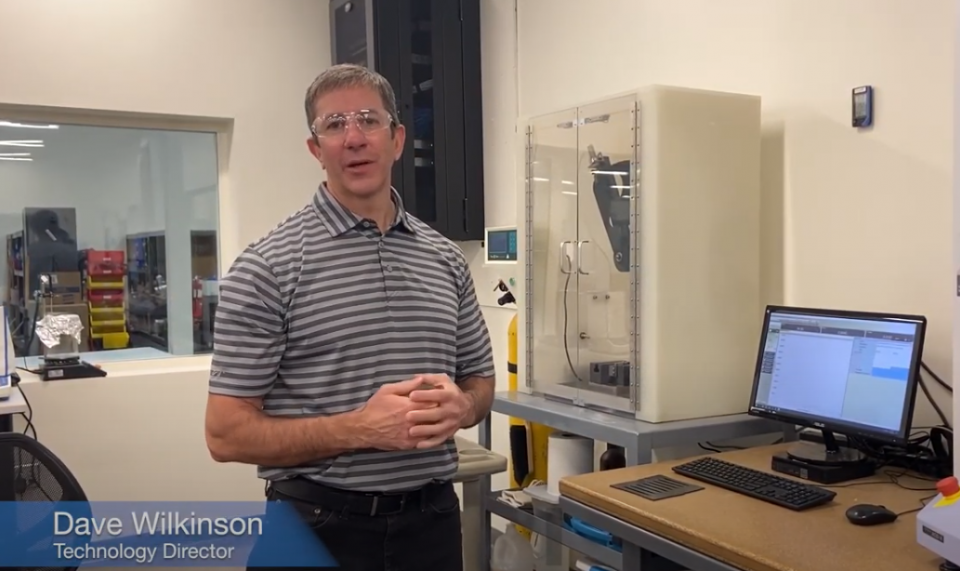The compounds from Mitsubishi Chemical Advanced Materials are being used to replace aluminum and steel in structural applications.
In January of this year, Mitsubishi Chemical Advanced Materials (MCAM) expanded its KyronMAX product line beyond performance-grade polymers, such as PEEK and PEI, by adding engineering polymers, including polycarbonate, nylon, polyphthalamide (PPA), and even polypropylene. These new compounds unlock a wider range of applications in the automotive and mobility, recreational, electronics, and medical industries.
When it was introduced in 2014, the KryonMAX family of high-strength injection moldable thermoplastic compounds was designed to bridge the gap between traditional thermoplastics and carbon-fiber composites. “KyronMAX combines the best of both worlds by allowing engineers to injection mold high strength, carbon-fiber-reinforced thermoplastics in minutes with strengths that are comparable to metal,” said Dave Wilkinson, Technology Director for Mesa, AZ–based MCAM. “Combining specialized short carbon fiber and proprietary sizing technology produces molded parts that have significantly higher mechanical performance than was previously possible using long-fiber technology (LFT).”
Metal replacement has become a strategic element in most major OEM strategies for lightweighting and sustainability. KyronMAX technology has raised the bar for performance of injection moldable plastics and provides customers the opportunity to replace metal parts with plastic, said MCAM. KyronMAX parts that replace metal components on vehicles contribute to lower overall weight, which translates into a reduction of fuel consumption and CO2 emissions. Part cost can also be significantly reduced through the consolidation of several metal components into a single thermoplastic part by eliminating secondary operations during assembly.
MCAM continues to innovate in materials science, and it now offers materials with tensile strengths that exceed 60,000 psi (414 MPa), as shown in the video. In addition to improved processability, KyronMAX compounds exhibit mechanical properties that surpass conventional glass- and carbon-fiber-filled thermoplastic systems at similar fiber loadings. This allows for a reduction in filler loading, thereby increasing material strain and allowing the molded part to yield rather than fracture. These compounds are now being used to replace aluminum and steel in structural applications.
A quarter-turn latch found in the galley of a commercial aircraft illustrates how even a small weight reduction can have a large impact. Typically made from machined aluminum, this latch is molded using KyronMAX S-6230, a carbon-fiber-reinforced PEI compound. Switching to the thermoplastic provided a 45% weight reduction while still meeting mechanical and flammability requirements. MCAM’s exclusive Sprint technology — a platform for rapid injection molding of functional parts — was used to rapidly prototype components prior to full production.
Sprint technology uses additive manufacturing to produce a mold that is injected with the KryonMAX compound in the same manner as a metal tool. These rapid, cost-effective prototypes allow for rapid design iterations while testing under operating conditions.
KyronMAX can be compounded into any polymer. If an application requires the cost and property balance of nylon 6/6, for example, MCAM can formulate a nylon 6/6 KyronMAX compound that is stronger than anything currently available on the market. This technology ultimately offers customers the flexibility of selecting any polymer they want and combining it with KyronMAX fiber to create the strongest moldable compound in that category.
“KyronMAX compounds can significantly change the way engineers approach part design, manufacturing, and assembly,” said Wilkinson. “The combination of KyronMAX’s performance with MCAM’s proprietary high-pressure molding technology is now able to produce the highest strength structural components made from injection molded thermoplastics.”
Source: Plastics Today | Clare Goldsberry
